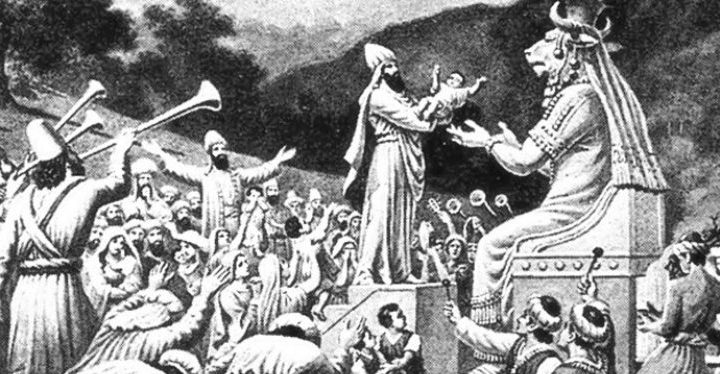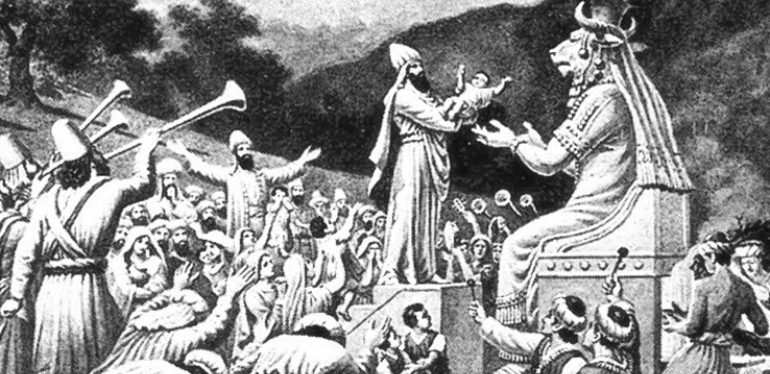“As much as any other voice in Scripture, Hosea fulfills the child’s dictum, (and) when told that no one knows what God looks like, responds, ‘They will when I finish.’ When Hosea has finished his sketch, we have a full characterization of God, one that does not accommodate the ‘orthodoxies’ of Old Testament tradition and certainly not the belated orthodoxies of subsequent communities of faith.”
Those words, written by the ever-insightful Hebrew Bible scholar Walter Brueggemann, introduce an essay written in 2008 and titled “The Recovering God of Hosea.” I stumbled upon it doing research for one of my annual summer sermons at Myers Park Baptist Church in Charlotte, N.C., when the Lectionary texts included Hosea 11:1-11. Following Brueggemann, I titled my sermon, “Forsaking Baal for the God Who Is in Recovery.”

Bill Leonard
In my years of writing for BNG, I’ve resisted bringing sermons into my opinion essays, but Brueggemann’s article overwhelmed me with its biblicism, its creativity and its application to events of our times. I’ve edited the sermon for this space, hoping it communicates the insights of Hosea through Brueggemann’s analysis.
Hear Hosea 11
Before Brueggemann’s insights overwhelmed me, Hosea 11 captivated me. (Ephraim = Israel)
When Israel was a child, I loved him and out of Egypt I called my sons (and daughters). The more I called them, the more they went from me; they kept sacrificing to the Baals and offering incense to idols. Yet it was I who taught Ephraim to walk, I took them up in my arms; but they did not know that I healed them. … The sword rages in their cities, it consumes their oracle-priests, and devours because of their schemes. My people are bent on turning away from me. To this (false god), they call, but he does not raise them up at all.
“Suddenly, the distance between Hosea and the rest of us narrows.”
Two phrases dramatically capture our times: “The sword rages in their cities. … To this false god, they call, but he does not raise them up at all. My people are bent on turning away from me.” Suddenly, the distance between Hosea and the rest of us narrows, because “the sword rages in our cities,” only it isn’t a sword, it’s an assault rifle, one of the false gods of our times, a weapon so destructive that “swords” seem like butter knives.
For Hosea, Israel has lost its moral moorings; it rejected the grace of God’s guidance that led them from Egyptian slavery, fed them in the wilderness, and brought them to Canaan. Now, Brueggemann says, they are “turning away from YHWH and leaving grace behind,” and YHWH is furious with them. Their relationship with YHWH is undermined by new deities represented in Baal, the Canaanite god of weather and fertility.
A battle rages Israel’s soul, but a battle also rages within YHWH. Israel deserves judgment, and YHWH is more than ready to deliver it. But the divine dilemma asks, “How can I give you up, Ephraim?” For Hosea, YHWH is somewhere between the wrathful anger of a divine judge and the loving compassion of a grace-filled Creator.
Brueggemann writes: “Hosea dares to take us inside that complex interior life of YHWH and thus to be exposed to a range of divine impulses not elsewhere available in Israel’s ancient text.” For Brueggemann, Hosea offers a unique, audacious view of God that is “daring, offensive and evocative, flowing from the depth of Hosea’s passion and the richness of his imagination.” It permits Hosea “to say the unsayable,” that YHWH and Israel have a complicated relationship, not simply because of Israel, but also because of YHWH’s own “complex, unsettled internal life.”
Judgment as poetry
And, like great writers, Hosea articulates those insights through poetry, what Brueggemann calls “an open, porous, imaginative presentation … that has no interest in or patience with” tying things into a neat doctrinal package or a comfortable closure.
Through poetry, Hosea illumines “the walls of mystery, the inscrutable, the unsayable.” His prophetic poetry carries Israel and the rest of us into a new understanding of the nature of God, what commentator H.D. Beeby calls a deeper entry “into the heart and mind of God than anywhere in the Old Testament.”
For Hosea, it is grace, not vengeance or retribution, that defines the depth of God’s nature.
“The prophetic poetry of Hosea calls Israel to remember that chosenness is not an entitlement.”
Hosea knows Israel is a mess. They play political games with surrounding nations and go through the motions of devotion to YHWH while fooling around with deities like Baal who offer them a set of inhumane values. Worse yet, they have confused a loving relationship with YHWH with an entitlement as God’s chosen people. The prophetic poetry of Hosea calls Israel to remember that chosenness is not an entitlement. It is a gift of grace, a sobering lesson for any nation that claims to be divinely exceptional.
America in 2022
Suddenly we’ve moved from Israel in 750 B.C. to America in 2022 A.D., confronting one of the most public and powerful Baals of our time, the assault rifle, a false god that “rages in our cities.” Three mass shootings this summer (out of at least 314 this year) document the tragedy of such idolatry.
- May 14: 18-year-old devotee to the god of white supremacy kills 10 Black people in Buffalo, N.Y.
- June 24: 18-year-old kills 19 third and fourth graders and two teachers in Uvalde, Texas.
- July 4: 21-year-old kills six and wounds 30 in Highland Park, Ill., parade.
The shooters used assault weapons, purchased with no questions asked. Yet after decades of mass shootings, our political leaders cannot find the courage to ban them nationally. Regionally, only seven states have done so.
I’ve written about all this in recent columns, why belabor it? Because I keep listening to interviews with Uvalde parents in my native state as they move between anguish and anger at the death of children so disfigured that DNA was needed to confirm their identities.
Last week, the Uvalde City Council asked the Texas governor for a special legislative session to change the age of purchase for assault weapons from 18 to 21. But families of the victims said that was not enough. Brett Cross, uncle and guardian to victim Uziyah Garcia, age 10, asked the council: “Do y’all know what a 10-year-old casket looks like? ’Cause it’s not a pretty sight. These weapons need to go.”
Second Amendment not inerrant and infallible
Like Hosea’s Israel, our America has lost its moral moorings. The Second Amendment to the Constitution is not an infallible and inerrant document that requires giving 18-year-old American idolators (or anyone else) the “right” to such instruments of potential child sacrifice. Lest we suppose that’s an exaggeration, we’d best recall the words of a congressperson who when asked, “How many AR-15s do you think Jesus would’ve had?” replied, “Well, he didn’t have enough to keep his government from killing him.”
If that’s not idolatry, then nothing is. Suddenly, Hosea become tragically contemporary: “To this (false god), they call, but he does not raise them up at all. … My people are bent on turning away from me.”
Those foolish remarks took me back to the words of Dietrich Bonhoeffer, writing from a Nazi prison in 1944:
“A fool must therefore be treated more cautiously than a scoundrel; we shall never again try to convince a fool by reason, for it is both useless and dangerous.”
Evil always carries the seeds of its own destruction, as it makes people, at the least, uncomfortable. Against folly we have no defense. Neither protests nor force can touch it; reasoning is no use; facts that contradict personal prejudices can simply be disbelieved — indeed, the fool can counter by criticizing them, and if they are undeniable, they can just be pushed aside as trivial exceptions. So, the fool, as distinct from the scoundrel, is completely self-satisfied; in fact, he can easily become dangerous, as it does not take much to make him aggressive. A fool must therefore be treated more cautiously than a scoundrel; we shall never again try to convince a fool by reason, for it is both useless and dangerous.”
Britannica Dictionary reminds us we’re all vulnerable to such foolishness: “A person becomes guilty of a more subtle idolatry, however, when, although overt acts of adoration are avoided, he attaches to a creature the confidence, loyalty and devotion that properly belong only to the Creator.”
‘A recovering agent of violence’
Brueggemann finds a similar warning from Hosea: “The outcome of Hosea’s characterization is a God who is a recovering agent of violence who has deep violence in the marrow of personhood, a memory of violence, a memory of violence regretted, and many lapses back into violence … but a resolve to be a parent of compassion.”
Similarly, the timeless poetry of Hosea in which God is “a recovering agent of violence” invites us “to be about the same recovery.”
At its best, the church insists that the compassionate God of Hosea “became flesh” in Jesus of Nazareth, and in Colossians 3:1-11 Paul describes what such compassionate new life requires:
But now you must get rid of all such things — anger, wrath, malice, slander and abusive language from your mouth. Do not lie to one another, seeing that you have stripped off the old self with its practices and have clothed yourselves with the new self, which is being renewed in knowledge according to the image of its creator. In that renewal there is no longer Greek and Jew, circumcised and uncircumcised, barbarian, Scythian, slave and free; but Christ is all and in all!
Brueggemann says spiritual recovery is “always continuing and never completed.” Jesus thought so too: “Where your treasure is, there will your heart be also.” Baal be damned.
Bill Leonard is founding dean and the James and Marilyn Dunn professor of Baptist studies and church history emeritus at Wake Forest University School of Divinity in Winston-Salem, N.C. He is the author or editor of 25 books. A native Texan, he lives in Winston-Salem with his wife, Candyce, and their daughter, Stephanie.
Related articles:
Rights, responsibilities and the two-fold commandment of love: A reflection on gun violence in America | Opinion by Greg Garrett
Our national golden calf is killing us | Analysis by Chris Conley


